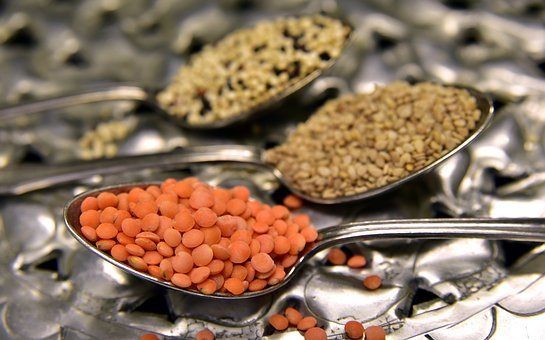Have you heard about the connection between lentils and blood glucose?
We are what we eat. That being said we know that food is very important for our health. This is once more confirmed, by choice of food we make. The first-ever study of the University of Guelph confirms this.
According to the study, replacing rice or potatoes with pulses might help. How? Well, it might help lower one’s blood sugar levels by around 20 %. Isn’t that great to know?
Dan Ramdath of Agriculture and Agri-Food Canada and Professor Alison Duncan from the Department of Human Health and Nutritional Sciences found one remarkable discovery.
They discovered that swapping out half of the portion of the starchy side dishes for lentils can greatly improve the response of our body to carbs.
Replacing around half of serving of rice with lentils made blood sugar levels to drop by around 20 %, and replacing potatoes with lentils caused blood sugar levels to drop to around 35 %.
Professor Duncan who also worked on this study with M. Sc. Students Jessica Wilson, Sarah Turkstra and Erica Rogers, and Ph.D. student Dita Moravek talks about the study.
She says that pulses are food rich in nutrients which can lower chronic diseases linked with mismanaged blood sugar levels. She added that very few Canadians eat lentils.
She said that Canada has a big production of lentils but they export most of it, and only around 13 % of Canadians actually consume them.
So, they hope that with the study people will become more aware of the many health benefits when it comes to consuming pulses.
More About the Study
Specially featured and published in the Journal of Nutrition, the research included 24 healthy participants who had 4 dishes.
Those dishes where white rice, half rice (white) and half small green lentils, half rice (white), and half big green lentils, half rice (white) and half lentils (split red).
The researchers of the study measured the sugar levels in the blood of the participants before they ate, during, and 120 minutes afterward. Researchers repeated the process for white potatoes only and the did the same combinations of lentils and potatoes.
They said that they mixed the lentils with the rice and potatoes since people do not usually eat pulses on their own. People prefer to consume them combined with other starches as part of a bigger meal, so they wanted the results to reflect that habit.
Blood sugar fell by similar amounts when half of the starch was replaced with lentils, regardless of the type of lentils.
Blood sugar comprises glucose discovered in the blood throughout digestion in the upper digestive tract, and it depends on the starchy foods taken.
The same as lentils, pulses might slow down the digestion and release the sugars located in the starch into the bloodstream and eventually lower the blood sugar levels, said professor Duncan.
She said that the slower absorption means that people won’t experience a spike in sugar. Having high sugar levels for some time can cause mismanage of blood sugar, the hallmark of diabetes type 2.
And consuming lentils might help lower that specific risk.
She also added that pulses have components which obstruct enzymes involved in the absorption of sugar, the fiber which is part of these foods might boost the production of the short-chain fatty acids, that can help lower the blood sugar levels.
Health Canada needs a 20 % reduction in blood sugar levels before a health claim about a reduction of blood sugar may be approved.
They are hoping that the building proof for approval of health claim for pulses will additionally encourage individuals to add pulses as their side dishes.
Source:

